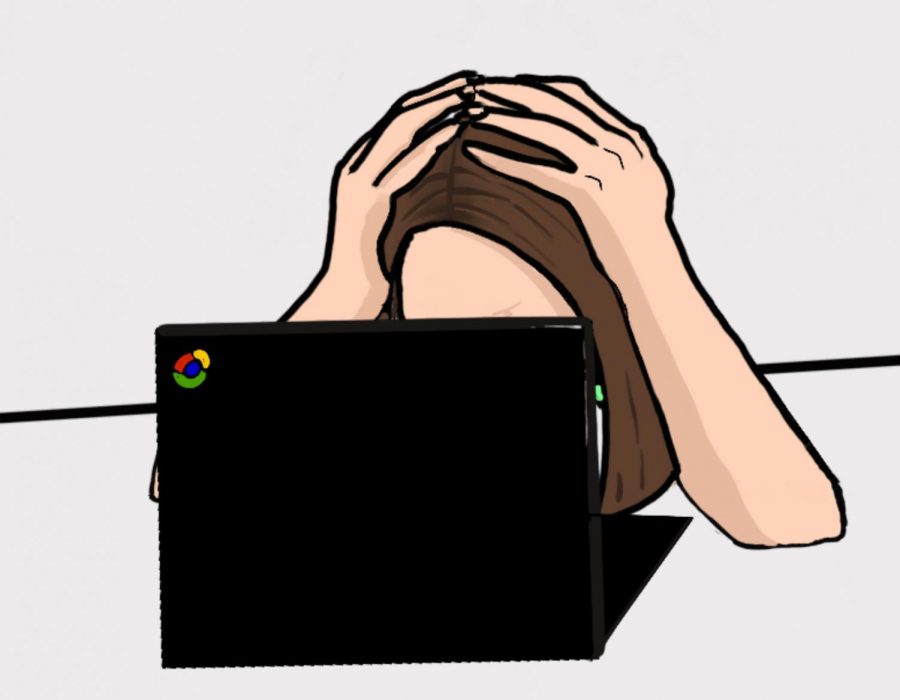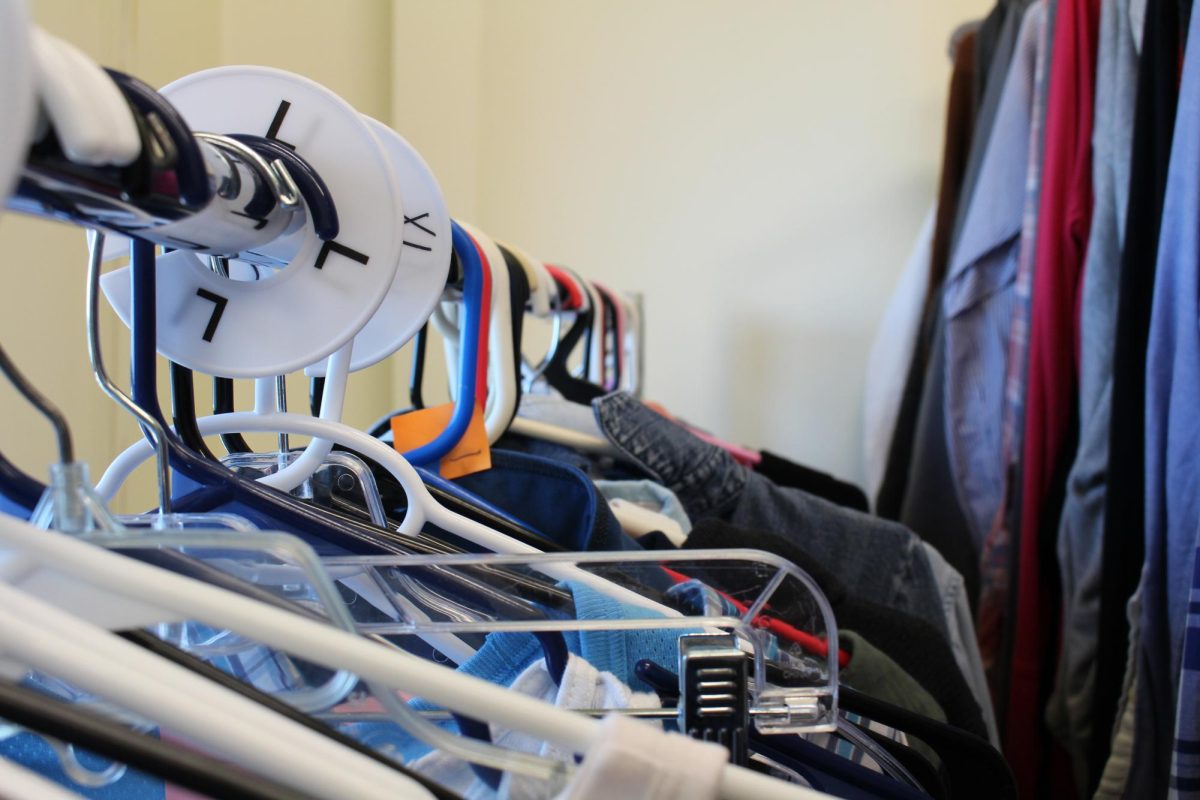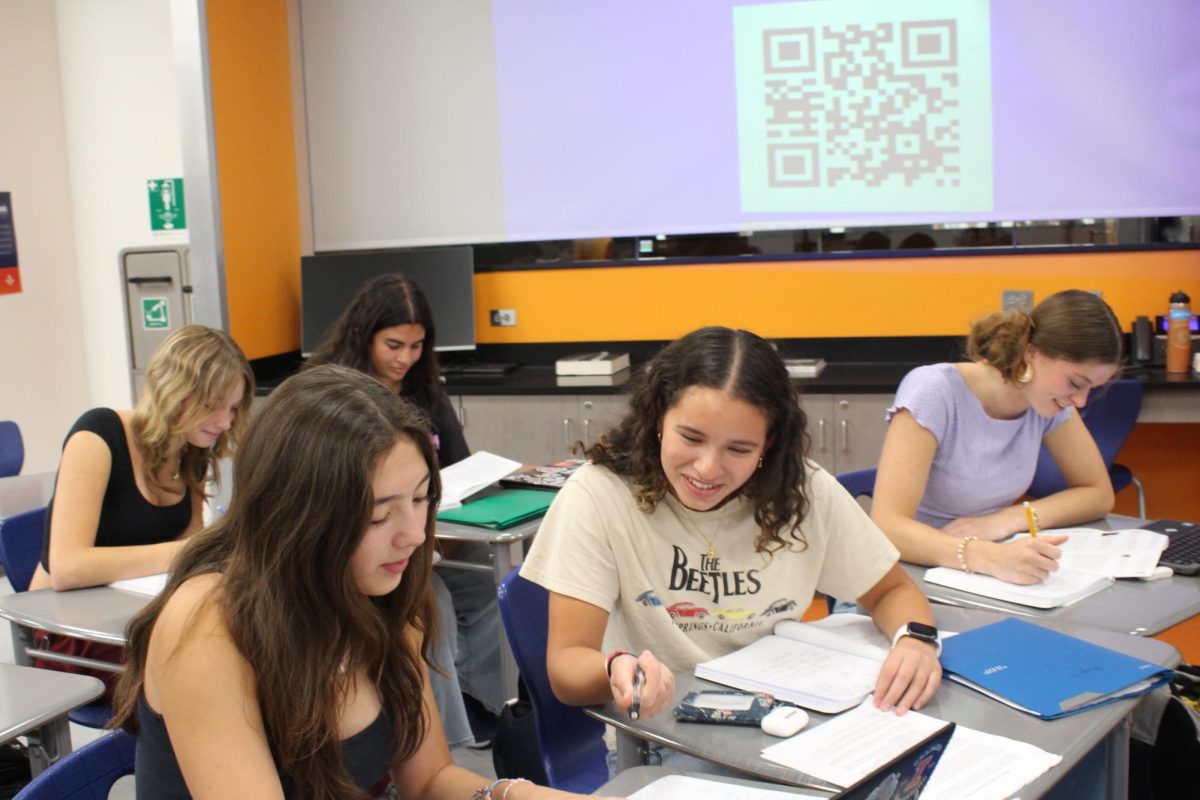Opinion | Working together against Zoom fatigue
November 16, 2020
With screens freezing, awkward breakout rooms, and the echoes of silence, Zoom can get tiring after the first two classes of the day. Staring at a screen for half the day takes a toll on not only a student’s eyes but on a student’s stamina. Zoom burnout has hit hard on ETHS students.
“I’d define Zoom burnout as feeling tired, because Zoom meetings require a lot of focus. I know a lot of people are expressing it right now. Especially students, because we’re not used to looking at the screen this much or constantly seeing an image of ourselves,” senior Livia Fredrick says.
Many ETHS students feel stuck in a loop. The constant need to adjust and make sure you look like you’re interested in what the teacher is saying is difficult. Plus, the struggle of technology and having to maintain a conversation also engage in the learning process adds up to a lot.
“This style of work is just really repetitive. Like, we get the exact same type of assignment. But, at the same time, for some teachers, it can’t really be changed as much, because of the circumstances. The amount of work makes it feels like we’re doing the same thing every day,” sophomore Lucielle Starr-Escobar states.
The curse of repetition causes many people to not see any joy in the day. Soon enough, the bright, cheery attitude and excitement to attend school slowly fades away. Work starts piling up, kids become angered easily and end up not caring. I find myself not being scared by points being docked on late assignments or emails being sent by my teachers to redo work. As a person who relatively enjoyed showing up to school and interacting with my friends, this change is hard. Having 70-minute class periods of just looking at a screen and doing work that I rarely care about. It implements the feeling of just wanting to shut off my computer.
“It feels like almost every day we’re doing the same thing. You wake up, go on Zoom calls all morning. And then, the rest of the day, you spend doing homework or projects. It definitely gets repetitive, and I can see how it can stress a person out,” junior Diana Nava explains.
However, Zoom burnout doesn’t only affect students.
“The first couple of months was tough, just being in front of a screen all the time. I went into teaching to interact with students and do fun chemistry labs. And this is different,” Chemistry teacher Neil Reimer explains. “So I needed to get some routines in place, to where I wasn’t staring at the screen the whole time, because if I just tried to plow through seven or eight hours a day in front of a screen, that just wasn’t healthy for me.”
By having to organize classes every day and dealing with unresponsive students, being a teacher during the COVID-19 pandemic is harder than ever. I’ve seen videos on Snapchat that usually involve kids unmuting their mic and yelling profanities or just being rude to their teacher. Sometimes, we students forget that our teachers are human too. I can’t imagine the toll it takes on educators to just be shouted at, or to have their classes be interrupted just for the sake of a joke. However, teachers usually recommend one way to put a stop to their own Zoom fatigue and have the ability to connect with students.
“Show me your face. It is like night and day where I’m stuck looking at a Zoom call with no cameras on. Just seeing at least one face is game-changing,” Reimer states.
There are many ways to combat Zoom fatigue that could help please both parties. For some teachers, it is turning on your camera, going to AM Support, or just simply being a kind student. I can’t speak for all students, but interactive assignments, short breaks during class, or just having a teacher who understands really makes a difference in the learning environment.
However, it is important to know that your personal mental health matters more than grades and assignments, especially during a worldwide pandemic. If you are a student or teacher, take care of yourself first and deal with the rest later.












